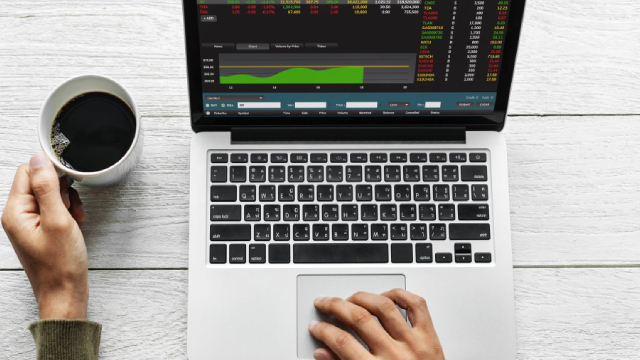The Surge in Small Investor Participation in U.S. Stocks: A New Era
The financial markets have witnessed a seismic shift in the dynamics of stock trading in the United States, with small investors playing an increasingly significant role. According to recent data compiled by JPMorgan, small investors currently account for approximately 25% of the trading volume in U.S. stocks. This figure represents a substantial increase from the pre-pandemic levels and is just a stone’s throw away from the record highs reached in early 2021.
Background: A Pre-Pandemic Landscape
Prior to the Covid-19 pandemic, small investors held a relatively minor stake in the U.S. stock market. Traditional brokerages and financial institutions dominated the scene, catering to high net worth individuals and institutional investors. Small investors, often referred to as “retail investors,” were typically sidelined, unable to compete with the deep pockets and sophisticated trading tools of their larger counterparts.
The Pandemic Effect: A Game Changer
The onset of the Covid-19 pandemic ushered in a new era for small investors. With many people confined to their homes and seeking new ways to invest their savings, the popularity of online trading platforms surged. Zero-commission trading, easily accessible information, and the widespread use of social media platforms for investment discussions created a perfect storm, enabling small investors to enter the market in unprecedented numbers.
Impact on the Individual Investor
The increased participation of small investors in U.S. stocks presents both opportunities and challenges for the individual investor. On the one hand, the democratization of trading has made it easier for retail investors to access a wider range of investment opportunities. Moreover, the collective buying power of small investors can significantly influence stock prices, as evidenced by the “meme stock” phenomenon.
- Greater access to investment opportunities
- Increased potential for price volatility
- Risk of herd mentality and speculative behavior
Impact on the World
The growing influence of small investors in the global stock markets is not without consequences for the world at large. The ripple effects of their trading activities can have significant implications for economies, financial institutions, and even geopolitical relations.
- Potential for increased market volatility
- Shifts in the balance of power between institutional and retail investors
- Impact on financial stability and regulatory frameworks
Conclusion: A New Reality
The surge in small investor participation in U.S. stocks marks a significant turning point in the financial markets. With their growing influence, small investors are poised to play an increasingly important role in shaping the investment landscape. While this new reality presents challenges, it also opens up new opportunities for retail investors to engage with the market and potentially reap rewards. As the world adapts to this new reality, it is crucial that individuals and institutions alike remain informed and prepared for the potential consequences.
As we move forward, the interplay between small investors and the broader financial system will be a fascinating area to watch. The future of investing is undoubtedly in the hands of the masses, and it is up to all of us to navigate this new terrain wisely.





